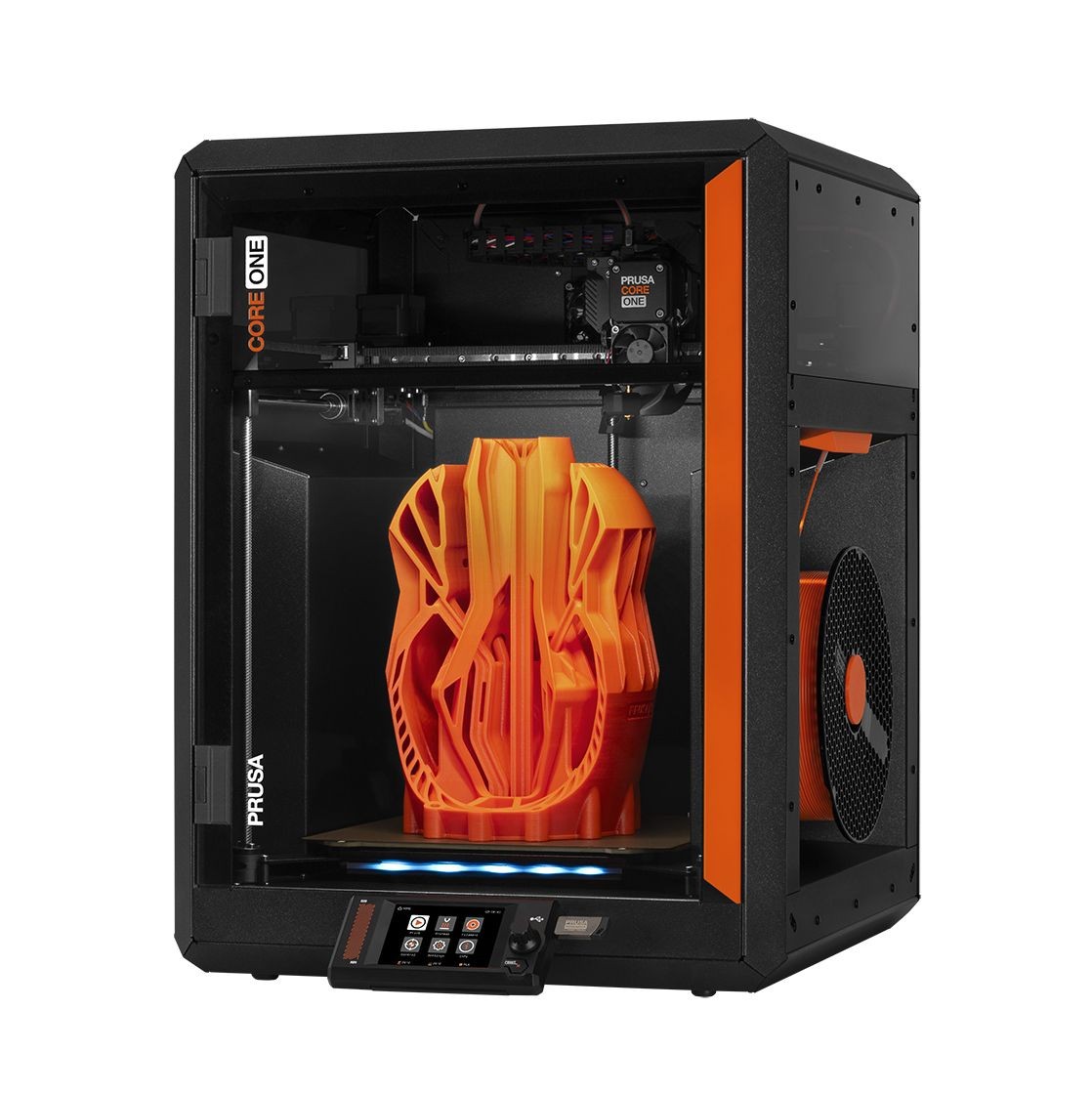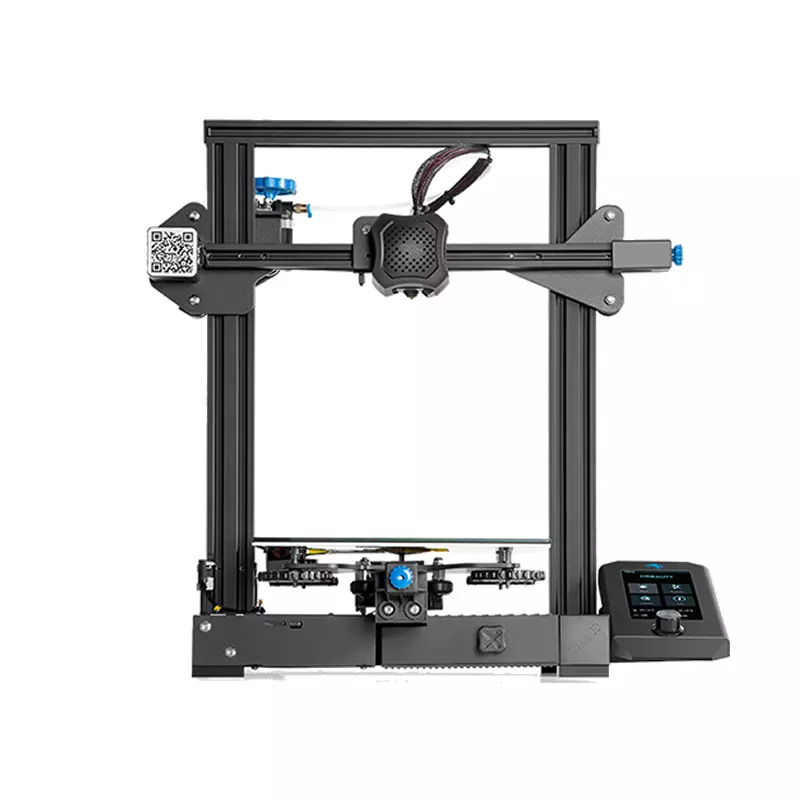Compare Core One vs Ender 3 V2
Comparison between the best 3D printers
Choose the best 3D printer at the best price. The cheapest 3D printers are here.
Buy a 3D printer here with 3D Fila.
 |
 |
|
| Model | Core One |
Ender 3 V2[BUY Ender 3 V2] |
| Printing Material | Filament | Filament |
| Buy Filament for Prusa Core One | Buy Filament forCreality 3D Ender 3 V2 | |
| Estimated price | $1200,00 | $289,00 |
| Manufacturer | Prusa | Creality 3D |
| Release Year | 2025 | 2022 |
| Print Volume [mm] | 250x220x270 | 220x220x250 |
| Printer Size [mm] | 385x340x620 | 470x475x620 |
| Weight [kg] | 14 | 7,8 |
| Power Loss Recovery | YES | YES |
| Enclosed printer | YES | NO |
| Bed Leveling | Automatic | Manual |
| Filament End Sensor | YES | NO |
| Bed type | Heated | Heated |
| Power supply system | Direct Drive | Bowden |
| Standard nozzle | 0,4 | 0,4 |
| Maximum Nozzle Temperature [°C] | 300 | 255 |
| Maximum Bed Temperature [°C] | 120 | 100 |
| Maximum printing speed [mm/s] | 500 | 180 |
| Filament holder | YES | YES |
| Camera for supervision | NO | NO |
| Recommended filaments | PLA, TPU, TPE, HIPS, ABS, PETG, WOOD, PC, PA, PVA, ASA | PLA, TPU, ABS, PETG |
| Recommended slicers | Cura, Prusa Slicer, Orca | Cura, Simplify, Slic3r |
| Maximum Resolution [mm] | 0,01 | 0,1 |
| Processor | xBuddy 32 bit | 32 bits |
| Display | Touchscreen 3,5'' | Touchscreen TFT 4,3'' |
| Power Supply | 240 W | 24V / 360W |
| Connectivity | SD | SD / USB |
| Operating systems | Windows, Linux e Macbook | Windows, Mac, Linux |
| Date of registration in the system | 2024-11-27 | 2021-04-15 |
| Release date | 2025 | 2022 |
| Extra features | The Prusa Core One is a CoreXY 3D printer featuring a robust steel frame, a 3.5" touchscreen, and a heated chamber for technical filaments. It offers 360° cooling for improved print quality and supports upgrades from the MK4S model. With a compact design, a print volume of 270x250x220 mm, and compatibility with the MMU3 for multi-color printing, it stands out for its ease of maintenance, precision, and speeds up to 260% faster than the MK3S+. | The Creality Ender-3 V2, with a design inspired by the Prusa i3 series, stands out for its DIY assembly structure. With an area of ??250x250x250mm, it supports a variety of projects. It has a micro-USB port, microSD slot and integrated tool drawer. The tension adjustment adapts to different regions. Its manual print bed leveling process requires attention, but offers an enriching experience. Ideal for 3D printing enthusiasts willing to invest time in assembly and adjustment. |
| Support for multiple colors and materials (AMS and CFS) | YES | NO |
Notes * |
||
| Cost-benefit | 7 / 10 | 7 / 10 |
| Hardware | 5.4 / 10 | 1.8 / 10 |
| Tela | . | . |
| Print volume | 3 / 10 | 3 / 10 |
| Performance | 4 / 10 | 1 / 10 |
| [BUY Ender 3 V2] |
Conclusion |
| In comparing the Prusa Core One and the Creality Ender 3 V2, it's clear that each printer has distinct strengths suited for different users. The Prusa Core One, being a higher-end model with an enclosed design, automatic bed leveling, and advanced features such as a filament end sensor and a higher maximum print speed, caters more to professional or serious hobbyist users. Its superior maximum nozzle temperature and print resolution allow for a wider range of materials and finer details. The robust build quality and additional features like connectivity and 360° cooling demonstrate its focus on performance, ease of use, and versatility, making it an excellent choice for complex projects or multi-color printing. On the other hand, the Creality Ender 3 V2 is designed for those who prefer a more budget-friendly option without sacrificing too much performance. While it lacks some of the advanced features of the Prusa, its DIY assembly approach offers an enriching experience for enthusiasts who enjoy engaging deeply with their setup. Its capacity for various filament types and decent print quality make it a great starting printer for beginners or casual users looking to explore 3D printing without a significant financial commitment. In summary, if affordability and hands-on engagement are your priorities, the Ender 3 V2 is a commendable choice. Conversely, for users seeking higher performance, advanced capabilities, and readiness for professional-grade projects, the Prusa Core One stands out as a worthy investment. Each printer, therefore, serves its segment effectively, and the choice ultimately hinges on user requirements and budget constraints. |

